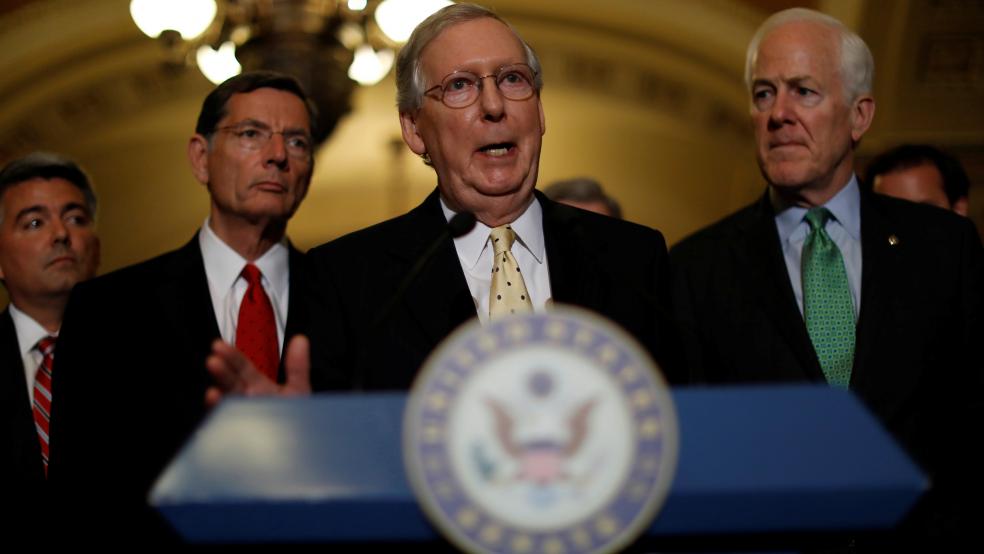Senate Republicans scored a major political victory early Saturday morning, passing a nearly $1.5 trillion tax-cut bill that represents the most sweeping overhaul of the tax code in three decades.
Significant differences in the Senate and House tax bills must still be reconciled, and stumbling blocks could still emerge during that process, but the Senate vote brings Republicans closer to securing their first major legislative achievement of the Trump presidency.
The 51-49 vote was largely along party lines, with Bob Corker (R-TN) the only Republican to break ranks and vote against the bill. Democrats were united in their opposition, and they decried the process that saw the nearly 500-page bill affecting almost every part of the U.S. economy go through last-minute revisions, with hand-written changes in the margins of the text, and rushed to a late-night vote with little time for lawmakers to read it.
Republicans cheered the bill’s passage, and Senate Majority Leader Mitch McConnell hailed it as a “great day for the country.” But critics — and there are many — warn that the legislation will disproportionately benefit the wealthy and could have unintended consequences as a result of the hasty process. They also say that the GOP’s short-term political win will carry dire long-term costs for the middle class and future generations.
Republicans claim that their tax overhaul, including a reduction in the statutory corporate tax rate from 35 percent to 20 percent, will further fuel an economy showing signs of strength, but nonpartisan analyses have found that the economic benefits will be relatively modest. A new report by the Tax Policy Center concludes that the Tax Cuts and Jobs Act as passed by the Senate Finance Committee a couple of weeks ago would boost GDP by 0.7 percent in 2018, but have little effect by 2027 or 2037. The Joint Committee on Taxation, Congress’s own scorekeeper, found that the tax plan would boost GDP by about 0.8 percent over 10 years.
“Republicans have argued that lower corporate tax rates will stimulate the economy through a step-up in investment outlays. In turn, faster economic activity will help lift tax revenues,” economist Joseph Lavorgna of investment bank Natixis wrote to clients Friday. “Unfortunately, for advocates of corporate tax cuts, there is no historical evidence to support this thesis.”
The mainstream analyses that have been published find that the tax cuts will come at a high cost even after accounting for economic feedback effects. The JCT, for example, said Thursday that the Senate tax plan would increase the deficit by $1 trillion over 10 years. And deficit-watchers warn that the true costs will be even higher once gimmicks in the tax legislation are added to the accounting.
Republicans nevertheless have held fast to their claims that the bill would produce enough growth to largely pay for itself, despite a lack of economic analyses to support that assertion. "I’m totally confident this is a revenue neutral bill. Actually a revenue producer,” McConnell said.





